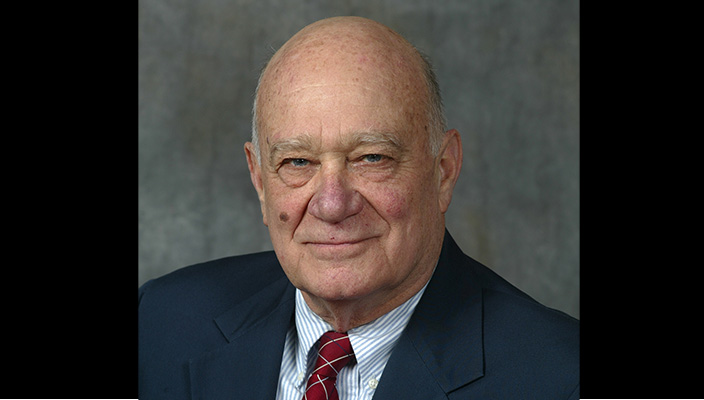Centuries ago, Jefferson argued that the only way we can foster politics for people is by the informed, active consent of the governed.
In his superb book, “Inventing America,” Garry Wills emphasizes that Jefferson, like Lincoln and Martin Luther King, Jr., in later centuries, had confidence that regular citizens could tap their personal benevolence for the public good.
The key to making the Greek word “demos” integral in government is for citizens to be engaged participants, not merely consumers. Has this task gotten harder over the centuries?
In my previous column, I cited a special section of the New York Times (on Oct. 13) that described the “deliberative opinion poll” that involved more than 500 representative Americans who met in Texas for four days in forum groups of twenty people.
This was a reprise of a similar project in Austin in 1996 when 600 people participated in a scientific opinion poll and then assembled (all expenses paid) to explore how their “top of the head” views might be affected when they interacted with other representative Americans from throughout the nation.
In 1996, the Kettering Foundation (led by David Mathews, former Health, Education and Welfare Secretary for President Ford) assembled skilled, non-partisan moderators who had worked extensively with The National Issues Forums Institute to facilitate the small group deliberations.
The goals in 2019 and in 1996 were similar. In civil, interactive sessions would citizens listen carefully to other views? Would they be willing to consider new, reliable data? Would they be willing to alter their policy views after a close examination of evidence and of the values conveyed by others?
The National Issues Forums (under the leadership of William Muse, former president of Auburn and other universities) have used the deliberative model of American jury trials, particularly in the careful weighing of reliable data when seeking informed judgments.
The policy decisions for NIF are more nuanced than regular juries because they also entail a weighing of costs and benefits for action/policy directions. They raise the continuing question of what citizens “can live with” in light of compromise trade-offs that might be needed for legislation and action.
At both the 1996 and 2019 citizens’ forums, the meetings in person with other citizens offered a better chance to move beyond the extreme partisanship and hostility that are so often seen in our contemporary politics.
As Pulitzer columnist Peggy Noonan has noted: “Americans have become very rude. A great nation cannot continue that way.” (Wall Street Journal, 8/24/19)
The warnings of the perils of politics have multiplied during the past two years; these article titles give admonitory notice: “Civil Discourse in Decline: Where Does It End?” “Americans’ Distrust of Officials; and One Another, Is Growing.” “Love Your Enemies: How Decent People Can Save America From the Culture of Contempt.”
An essay (10/21) shows the unwillingness to compromise (by Jonathan Hack, at “The Anxieties of Democracy Program” in New York City).
Expanded pathways for citizens’ deliberative discourse can have powerful effects if they are more often explored. Studies by John Doble Research Associates (and others) report progress of deliberative forums in fostering:
1.) Self-insight and a sense of one’s own identity
2.) Cross-cultural sensitivity – the ability to decipher other people’s values
3.) Cultural/moral humility – the ability to see one’s own values as not necessarily better or worse than another’s values
4.) A pro-active problem-solving orientation – the conviction that interpersonal and cross-cultural problems can be solved
5.) Personal flexibility – the ability to adopt different responses and approaches as needed by situational contingencies
6.) Negotiation skills – the ability to explore differences creatively, to locate some common ground, and to solve the problem
7.) Interpersonal and cross-cultural tact – the ability to solve problems with people without insulting them, demeaning them, or destroying their “face”
8.) Repair strategies and skills – the ability to resurrect, to revitalize, and to rebuild damaged or broken face-to-face relationships
9.) Patience
Long Island (Nassau and Suffolk counties) with nearly four times the population of states like Wyoming and Alaska could be a model for the U.S. by sponsoring National Issues Forums.
We have more than 80 outstanding public libraries (Benjamin Franklin, founder of citizens’ libraries, and one of our greatest community builders, could be honored in these endeavors).
Indeed, our more than 100 high schools and our few dozen colleges and universities could seek to engage every student in deliberative forum experiences. Such endeavors would go far beyond what was done in Texas in 1996 and 2019.
Perhaps a Long island philanthropist can put our region on a path for the nation to follow. Contributions are needed to support training programs for moderators and for other expenses.
Ken Langone, whose working-class Italian-American family lived in Roslyn, has been terrifically generous and creative in supporting medical projects and innovations in our region.
Perhaps Mr. Langone can extend his pioneering generosity to a venture that will be a model for our nation – now to strengthen the body politic, as he has done so much to enhance our physical health.
As Franklin’s dear friend Jefferson noted: “If we think the people not enlightened enough to exercise power with a wholesome discretion, the remedy is not to take power from them but to inform their discretion with education. We must preach a crusade against ignorance; for if a nation expects to be ignorant and free, it expects what never was and never will be.”



